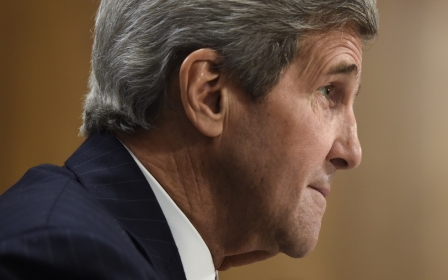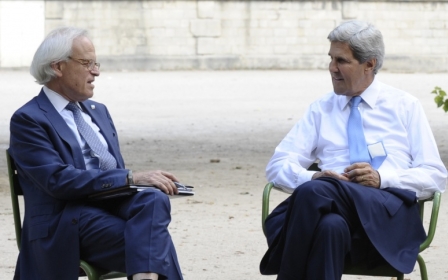State of Palestine to join five international treaties

Five international treaties will enter into force in the UN-recognised State of Palestine on Friday, according to the UN High Commissioner for Human Rights.
"Five of these treaties are set to enter into force today," spokesperson for the Commissioner Rupert Colville said in a press conference in Geneva on Friday, "the Optional Protocol to the Convention on the Rights of the Child will enter into force on 7 May; and the two Covenants will come into force on 2 July."
The treaties cover a variety of issues, including banning torture and racial discrimination, and protecting the rights of women, children and the disabled.
The accession to the eight treaties will see the State of Palestine formally bound by international law to uphold these principles.
The treaty to be signed on May 7 will commit the State of Palestine to an accord protecting children in conflict zones. On July 2 it will adopt agreements governing civil, political, economic, social and cultural rights.
New MEE newsletter: Jerusalem Dispatch
Sign up to get the latest insights and analysis on Israel-Palestine, alongside Turkey Unpacked and other MEE newsletters
Colville lauded the Palestinian Authority's openness in signing up to the treaties. "We believe that Palestine is the only country in the whole Middle East and North Africa not having a single reservation at all on any of the treaties that they ratified. The issue of not having a reservation is a positive one," Colville said. "The High Commissioner for Human Rights commends the commitment of the State of Palestine to be bound by the international human rights standards contained in these treaties and to engage with the associated human rights treaty bodies which monitor their implementation."
The signing of international treaties has proved controversial. The Palestinian Authority's decision to sign up to 15 UN bodies was cited by the Israeli government as one of the principles reasons for the freezing of the peace process negotiations, which officially expired on the 29th of April. It also lead to Israeli PM Benjamin Netanyahu ordering a cessation of communcation between government ministries and their Palestinian counterparts.
Middle East Eye delivers independent and unrivalled coverage and analysis of the Middle East, North Africa and beyond. To learn more about republishing this content and the associated fees, please fill out this form. More about MEE can be found here.




